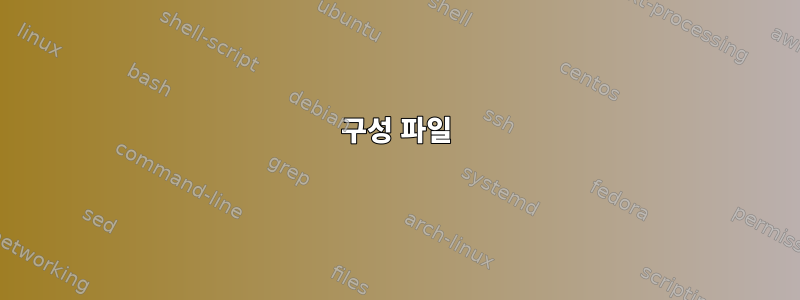
일반 Linux 사용자가 있습니다.
- 단일 명령을 실행하려면 SSH 로그인만 허용되며 다른 명령은 허용되지 않습니다.
- 아마도 한 번 이상 로그인하지 않을 것입니다.
첫 번째 제한은 command사용자 파일 authorized_keys의 옵션을 사용하여 구현 되며 정상적으로 작동합니다.
두 번째 제한은 PAM을 사용하여 적용됩니다 /etc/security/limits.conf. 이 부분은 이전 제한 사항과 결합하면 전혀 작동하지 않는 것 같지만 그렇지 않으면 작동합니다. 즉, SSH 로그인을 단일 명령으로 제한하면 필요한 만큼 동시에 로그인할 수 있습니다. 해당 옵션을 사용하지 않으면 command특정 시간에 여러 번 로그인할 수 없습니다. (일반적인 오류로 인해 로그인이 거부되었습니다 Too many logins for user 'X'.:)
command이 옵션을 사용할 때 PAM이 로그인을 제한하지 않는 이유는 무엇입니까 authorized_keys? 위의 두 가지 제한 사항을 동시에 적용하려면 어떻게 해야 합니까?
sshd는 pam( )을 사용하도록 구성되었습니다 UsePAM yes.
부록: 추가 조사에 따르면 모든 SSH 연결(지정된 옵션 유무에 관계없이)에 대해 제한이 평가되는 것으로 보입니다 maxlogins. command그러나 로그인/PTY 세션은 계산되는 유일한 세션 유형이므로 maxlogins대화형 세션 수가 아래에 유지되는 한 병렬 비대화형 세션을 얼마든지 열 수 있습니다 maxlogins.
이 문제를 해결하는 두 가지 방법을 볼 수 있습니다.
- SSHD 자체가 사용자당 단일 연결 제한을 적용하도록 허용
- Linux가 비대화형 쉘을 계산하도록 하는 방법을 찾으십시오.
maxlogins
두 가지 모두에 대한 매뉴얼 페이지를 살펴봤지만 sshd (8)관련된 sshd_config(8)내용을 찾을 수 없습니다. tty 클라이언트(예 ssh -tt: )를 강제로 사용하도록 할 수 있지만 이렇게 하면 제한 사항이 클라이언트에 적용됩니다.
구성 파일
데비안 기반 도커 컨테이너에서 이것을 설정하려고 합니다. 에 추가된 4개의 라인을 제외하면 /etc/pam.d/sshd업스트림에서 변경된 사항은 없습니다./etc/ssh/sshd_configsshd_config
/etc/pam.d/sshd
# PAM configuration for the Secure Shell service
# Standard Un*x authentication.
@include common-auth
# Disallow non-root logins when /etc/nologin exists.
account required pam_nologin.so
# Uncomment and edit /etc/security/access.conf if you need to set complex
# access limits that are hard to express in sshd_config.
# account required pam_access.so
# Standard Un*x authorization.
@include common-account
# SELinux needs to be the first session rule. This ensures that any
# lingering context has been cleared. Without this it is possible that a
# module could execute code in the wrong domain.
session [success=ok ignore=ignore module_unknown=ignore default=bad] pam_selinux.so close
# Set the loginuid process attribute.
session required pam_loginuid.so
# Create a new session keyring.
session optional pam_keyinit.so force revoke
# Standard Un*x session setup and teardown.
@include common-session
# Print the message of the day upon successful login.
# This includes a dynamically generated part from /run/motd.dynamic
# and a static (admin-editable) part from /etc/motd.
session optional pam_motd.so motd=/run/motd.dynamic
session optional pam_motd.so noupdate
# Print the status of the user's mailbox upon successful login.
session optional pam_mail.so standard noenv # [1]
# Set up user limits from /etc/security/limits.conf.
session required pam_limits.so
# Read environment variables from /etc/environment and
# /etc/security/pam_env.conf.
session required pam_env.so # [1]
# In Debian 4.0 (etch), locale-related environment variables were moved to
# /etc/default/locale, so read that as well.
session required pam_env.so user_readenv=1 envfile=/etc/default/locale
# SELinux needs to intervene at login time to ensure that the process starts
# in the proper default security context. Only sessions which are intended
# to run in the user's context should be run after this.
session [success=ok ignore=ignore module_unknown=ignore default=bad] pam_selinux.so open
# Standard Un*x password updating.
@include common-password
/etc/ssh/sshd_config
# $OpenBSD: sshd_config,v 1.103 2018/04/09 20:41:22 tj Exp $
# This is the sshd server system-wide configuration file. See
# sshd_config(5) for more information.
# This sshd was compiled with PATH=/usr/bin:/bin:/usr/sbin:/sbin
# The strategy used for options in the default sshd_config shipped with
# OpenSSH is to specify options with their default value where
# possible, but leave them commented. Uncommented options override the
# default value.
#Port 22
#AddressFamily any
#ListenAddress 0.0.0.0
#ListenAddress ::
#HostKey /etc/ssh/ssh_host_rsa_key
#HostKey /etc/ssh/ssh_host_ecdsa_key
#HostKey /etc/ssh/ssh_host_ed25519_key
# Ciphers and keying
#RekeyLimit default none
# Logging
#SyslogFacility AUTH
#LogLevel INFO
# Authentication:
#LoginGraceTime 2m
#PermitRootLogin prohibit-password
#StrictModes yes
#MaxAuthTries 6
#MaxSessions 10
#PubkeyAuthentication yes
# Expect .ssh/authorized_keys2 to be disregarded by default in future.
#AuthorizedKeysFile .ssh/authorized_keys .ssh/authorized_keys2
#AuthorizedPrincipalsFile none
#AuthorizedKeysCommand none
#AuthorizedKeysCommandUser nobody
# For this to work you will also need host keys in /etc/ssh/ssh_known_hosts
#HostbasedAuthentication no
# Change to yes if you don't trust ~/.ssh/known_hosts for
# HostbasedAuthentication
#IgnoreUserKnownHosts no
# Don't read the user's ~/.rhosts and ~/.shosts files
#IgnoreRhosts yes
# To disable tunneled clear text passwords, change to no here!
#PasswordAuthentication yes
#PermitEmptyPasswords no
# Change to yes to enable challenge-response passwords (beware issues with
# some PAM modules and threads)
ChallengeResponseAuthentication no
# Kerberos options
#KerberosAuthentication no
#KerberosOrLocalPasswd yes
#KerberosTicketCleanup yes
#KerberosGetAFSToken no
# GSSAPI options
#GSSAPIAuthentication no
#GSSAPICleanupCredentials yes
#GSSAPIStrictAcceptorCheck yes
#GSSAPIKeyExchange no
# Set this to 'yes' to enable PAM authentication, account processing,
# and session processing. If this is enabled, PAM authentication will
# be allowed through the ChallengeResponseAuthentication and
# PasswordAuthentication. Depending on your PAM configuration,
# PAM authentication via ChallengeResponseAuthentication may bypass
# the setting of "PermitRootLogin without-password".
# If you just want the PAM account and session checks to run without
# PAM authentication, then enable this but set PasswordAuthentication
# and ChallengeResponseAuthentication to 'no'.
UsePAM yes
#AllowAgentForwarding yes
#AllowTcpForwarding yes
#GatewayPorts no
X11Forwarding yes
#X11DisplayOffset 10
#X11UseLocalhost yes
#PermitTTY yes
PrintMotd no
#PrintLastLog yes
#TCPKeepAlive yes
#PermitUserEnvironment no
#Compression delayed
#ClientAliveInterval 0
#ClientAliveCountMax 3
#UseDNS no
#PidFile /var/run/sshd.pid
#MaxStartups 10:30:100
#PermitTunnel no
#ChrootDirectory none
#VersionAddendum none
# no default banner path
#Banner none
# Allow client to pass locale environment variables
# AcceptEnv LANG LC_*
# override default of no subsystems
Subsystem sftp /usr/lib/openssh/sftp-server
# Example of overriding settings on a per-user basis
#Match User anoncvs
# X11Forwarding no
# AllowTcpForwarding no
# PermitTTY no
# ForceCommand cvs server
PubkeyAcceptedKeyTypes ssh-ed25519
HostKeyAlgorithms ssh-ed25519
ChallengeResponseAuthentication no
PasswordAuthentication no
답변1
이는 질문에 대한 일반적인 대답은 아니지만 동시 로그인을 허용하지 않고 단일 명령만 실행하도록 허용하는 문제를 해결합니다.
를 사용하여 사용자를 제한하지 않으려면 옵션 maxlogins값을 로 래핑 할 수 있습니다. 그건:authorized_keyscommandflock
command="flock /path/to/lock ORIGINAL_COMMAND ARGS...", ssh-ed25519 AAAAA...
사용 사례에 따라 일부 클러스터링 옵션(차단 없음, 시간 초과 등)을 살펴보는 것이 좋습니다.


